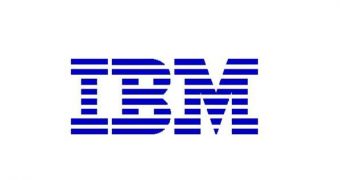The latest acquisition made by IBM, that of Platform Solutions (PSI), a vendor of mainframes and other computer hardware, ended a law issue between the two companies, but also raised antitrust concerns from an IT trade group. IBM filed a law suit against Platform Solutions in November 2006, accusing it of patent infringement through the creation of computers that allowed the usage of IBM's System z operating systems and software on mainframes from other vendors.
In January 2007, IBM was filed a countersuit by PSI, being accused of antitrust violations and unfair competition.
According to the Computer and Communications Industry Association (CCIA), IBM now swallows up its most significant competitor in the mainframe market through this acquisition. "This is a black-hole acquisition," said CCIA president and CEO Ed Black. "It sucks the life out of the market and destroys the matter." Black added in a statement that while competitors had potential on the market until now, the deal transforms the field into one "with little prospects for anything but complete domination by IBM".
IBM has been criticized by CCIA for a long time now, but other tech mergers have bee as well. According to CCIA, IBM's acquisition may fall under the financial entrance for a mandatory review by U.S. and European Union antitrust regulators. The important issue of the deal is its potential impact on the mainframe market, believes CCIA, and it pledged the authorities to take a deep insight.
Another effect of the deal could be its influence on PSI customers' possibility of acquiring mainframes based on open systems, said CCIA. PSI's products were open system based, while IBM's mainframes are proprietary system based. The group also added that mainframes represent more than 80 percent of the world's corporate and government data.
An antitrust consent degree filled in 1956 against IBM was abandoned in 2001 by the U.S. Department of Justice. Yet, the institution announced that, if IBM engaged in anticompetitive behavior, the company could be again subject to an antitrust lawsuit.
T3 Technologies, another mainframe vendor, announced this week its plans to file an antitrust complaint against IBM with the European Commission. According to T3 Technologies, IBM ended its support for older mainframe systems and also does not want to license its mainframe software to rivals, shutting them down this way. The company tried to join PSI in its lawsuit against IBM back in November.
"CCIA strongly believes that IBM's actions since the consent decree was dissolved, the purchase of PSI and these new allegations by T3 collectively paint a convincing picture that IBM has gone back to its old ways," Black said. "When it comes to violations of competition law, IBM appears to be an unrepentant recidivist."
According to Tim Breuer, an IBM spokesman, the company has actually focused on transforming its mainframes into open servers capable of running open technologies like Linux and Java. He also added that those applications that run on IBM mainframes can run on other major servers as well.
IBM also doubted CCIA's view of the mainframe market. "IBM's mainframes compete in an intensely competitive worldwide market with a variety of alternative platforms offered by many competitors," Breuer said. "IBM's acquisition of PSI will enhance the ability of IBM's mainframes to compete against those alternative platforms."
IBM stated that PSI's technologies would be integrated into IBM's long-term mainframe engineering cycles.
"We are pleased to become part of IBM, knowing IBM has the industry's most comprehensive vision for the future direction of enterprise computing, and has the requisite technologies to realize that vision," Michael Maulick, PSI's president and CEO, said in a statement. He also added that the acquisition "makes the most sense" both for IBM and PSI.
The financial terms of the deal were not disclosed by the two companies.

 14 DAY TRIAL //
14 DAY TRIAL //